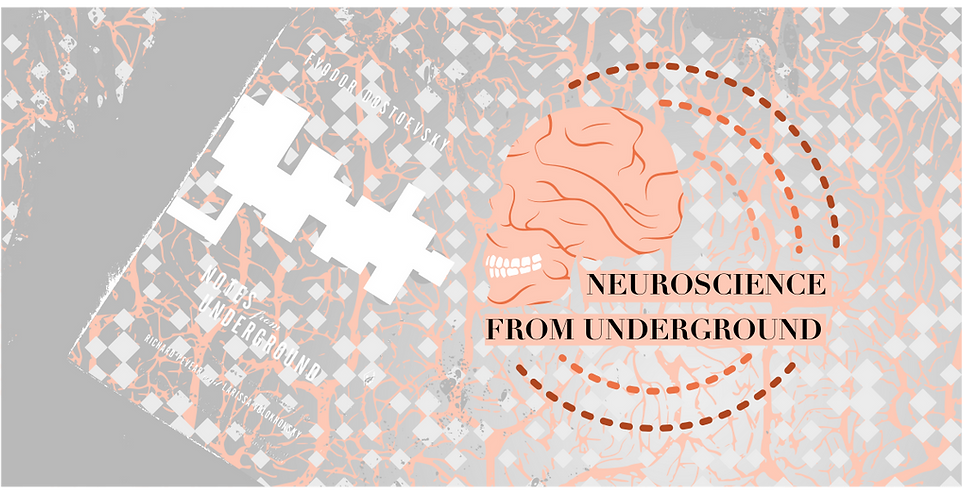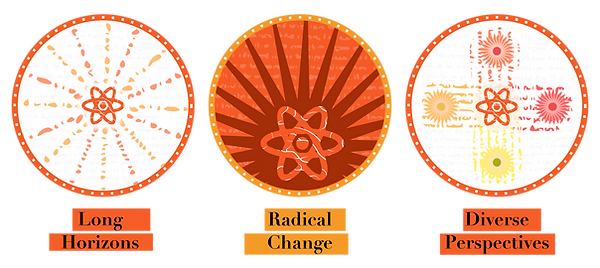
Charting the path to a biologically informed system of mental illnesses
Willa Goodfellow ~ Mar '20
A moonshot exploring the human brain at single-cell resolution
Andrew Neff ~ Mar '20
Written by Andrew Neff
February 2021 and May 2019

Neuroskeptic, Neurocritic, the late Scott Lilienfeld - these scientist-writers were my heroes - bastions of skeptical rationality, guarding against the deluge of vacuous optimism.
In graduate school, I heard a different story, a much more conclusive one, about the link between the mind and brain. I learned what neurotransmitters did, what parts of the brain did, and what psychiatric diagnoses were. Attending class, reading textbooks, talking to professors, I itched - why isn’t this making any sense? Half of this itch was the result of bites from these my scientist-heroes, who in clear terms, laid out exactly what wasn’t adding up:
human neurotechnology was too
crude to deeply understand the human mind,
neurotransmitters generally don’t have clear
or specific behavioral functions,
and most aspects of psychology can’t be
specifically localized to parts of the brain.
At the same time, I began to realize the second half of the itch - academic psychology didn’t resemble my understanding of the human mind. My first interest in psychology came from a novel, Notes from Underground, which explored themes of alienation and cultural criticism. From there, I read more novels and began exploring religion, particularly Buddhist philosophy and meditation. After a few years, I became dissatisfied with this humanistic approach: although much of what I read seemed intuitively reasonable, and some of it made me very happy, it lacked certainty. And so I turned to science, expecting to explore these ideas with more rigor.
What I found in psychology was a completely different language that had little resemblance to the things I thought and cared about. For one, academic research was reductive - neglecting the complexity of real-world human psychology. At the same time, the focus was just different - despite tens of thousands of academic articles on mindfulness meditation, essentially no scientists were thinking scientifically about mainstream Buddhist religious practices or concepts like the noble eightfold path.
What can a mouse's decision to float
or thrash in a beaker full of water (google the ‘forced swim test’)
tell me about the stress of college applications
or the heartbreak of high-school romance?
For the sake of neuroscience research,
if we’re defining ‘happiness’ as ‘our reaction to positively-themed pictures’,
are we really learning anything about the sporadic transcendence of everyday joy?
At the end of graduate school, I wanted to be like my skeptical heroes: to enter the bastion myself, defending truth and integrity from interpretive overreach. I created a blog, which evolved into something called Neuroscience From Underground, where I, the socially alienated critic, would uphold the principles of intellectual integrity. College students and psychedelic explorers and cognitive self-enhancers and the brutally depressed and the generally curious would store my blog’s URL in their bookmarks bar. They’d come to me week after week to learn that what they’d been taught in their brain and behavior classes was reductive beyond use. Throw it away, all of it, and start from scratch. Build a new foundation of neuroscience on the twin pillars of non-invasive technology-development and slapping psychology in the face with everyday, humanistic, reality.
No more coarse resolution technology,
just foundational research on neuroimaging.
No more mice as a model
for human mental illness.
And the insistence on critiquing academic psychology from the
perspective of novelists, therapists, philosophers, monks, religious leaders,
bioinformatics Phd.-student-dropout Lyft drivers,
arts culture and entertainment magazine editors,
screen-writers, drug-users, human-optimizers, biohackers,
politicians, economists, advertisers, small business owners, waiters, bartenders,
and people of all genders and socio-demographics -
a new populism in academic psychology.
EMERGING FROM THE UNDERGROUND
In the year that I managed this blog, I learned three things. First, I discovered that scientists, and even the general public, were far more aware of these limitations than I once realized. Second, I began teaching, and as I continued reading and thinking in preparation for lectures, I found more and more examples of interesting and useful psychology and neuroscience. Last, I realized that I was complaining much more than I was showing a path forward.
These neuroskeptics were not just my heroes: they were upstanding members of the community - widely respected academics as far as I could tell. They’d been forging a new public opinion as much as they’d been reflecting it. So to trust these skeptics, as I still do, means I can’t throw everything away.
Despite continued criticism, science goes on. Neuroskeptic keeps doing neuroimaging (I think, anonymous blogger that he is); Scott Lilienfeld, although passed, kept doing clinical psychology. These people, as foundational figures in a new conceptualization of neuroscience and psychiatry, found a way to straddle the line between orthodoxy and skepticism.
When talking to most neuroscientists, now endowed with great wisdom and maturity, it’s clear that I’m far from the only one who gets it. I’m often tempted to think that most academics get it. Critical as I am, I’m decades behind; the real leaders of this movement have been making my points for centuries.
There is a 100-year goal of biological psychology, and mine is pretty radical, but I’m starting to grapple with what to do in the meantime. And the first place to start is by simply acknowledging that modern psychology and neuroscience have value. Technological advancements in the last two decades have advanced to stunningly sci-fi territory. In humans, artificial limb prostheses are approaching the usability of in-tact biological limbs. Electrical brain recording systems are allowing people who are fully paralyzed to communicate via thought alone. Neuroscience, even today, is doing some powerful things. Psychology, today, is providing us with more concrete answers to questions than we’ve had before.
The last blog post I wrote, although plenty critical, vaguely describes and justifies a path into the future - it was an ode to the development of non-invasive neurotechnologies. From about then until now, I’ve had to start reconciling the hard truth that criticism is far easier, but far less worthwhile, than proposing a rational path forward. Neuroscience proposed it’s thesis, faced plenty of rejection, and now, maybe, it’s time to start thinking about synthesis. Frankly, even after a Ph.D and teaching college courses, I wasn’t really sure where to begin, and even today, not much later in the future, I’m still not sure exactly where to begin. But a journey of a thousand miles begins with a single step.
Original Manifesto - May 2019
“Such persons as the writer of these notes not only may but even must exist in our society,
taking into consideration the circumstances under which our society has been formed”
Fyodor Dostoevsky, introductory note to Notes From Underground
We live in a time when scientific merit is measured by publication count. Where one major finding after another is found to be irreproducible in separate labs, or ungeneralizable to similar situations. Where obtaining research funding is two parts luck, one part networking, and one part merit. Where in psychiatry, our fundamental premises are based on expert consensus, rather than conclusive scientific findings. Where cures to diseases are always right around the corner. Science, as an aspiration, can be immeasurably valuable. Biological psychiatric research, as a practice, is a bureaucratic labyrinth and a communicative arms race.
But scientists can also be brilliant, skeptical, and incomparably rational. The enlightened audiences of bloggers like neuroskeptic
and twitter heros like @justsaysinmice number in the hundreds of thousands. Universities, scientific journals, and funding bodies are constantly reforming their practices to become more in line with the public interest. But if we want real reform, institutional changes in incentive schemes may not be enough.
Want more Brain Science in your life?
Figured you did,
support Neuroscience From Underground today on Patreon.
5% of our annual proceeds are donated to the John Templeton Foundation.
For the past several hundred years, we’ve been seeking a biological basis of mental illness. We made grand assertions about skull shape, the power of neurotransmitters, and the diagnostic potential of EEG and fMRI, but very little of it has a meaningful impact on people’s lives. It may be that, from a historical perspective, skepticism is the only justifiable position towards the value of neuroscience.
At the same time, to understand the biological basis of mental illness, we can’t progress without getting both the biology and the psychology right. As our neurotech advances, we need to continue with an open mind to other interpretations of humanity. Whether it’s psychiatry’s current diagnostic system or the National Institute of Mental Health’s plan to replace it, expert consensus still dictates our psychological terminology. Until we’re neurobiologically sure about a construct, we need to remain open to alternative perspectives from creative thinkers of all types.

In parallel with institutional reform, neuroscience communication needs cultural upheaval. We need to insist on interpreting our results within the context of what really matters, maintaining our focus on the horizon that we all claim we’re looking towards. And we have to open our minds to the enormous range of compelling ideas that have never been given their scientific due.
The name Neuroscience from Underground comes from the novel Notes from Underground by Fyodor Dostoevski, a book that has torn many undergraduate classics and philosophy students to pieces. The narrator is, however, not an aspirational figure. Instead, he represents a rejection of popular definitions of achievement while, at the same time, highlighting how flawed we all are and how much work needs to be done. There’s hope for the science of mental illness if only we remember how difficult the problem is, and are willing to acknowledge our limitations.





























